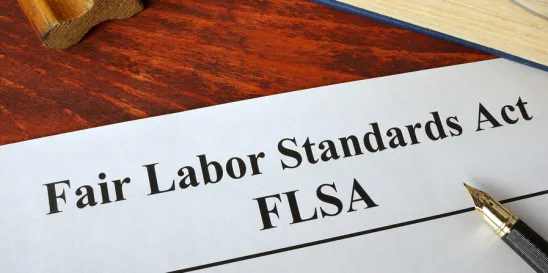This is the eighth of our 12 Days of Handbook Updates that take you through 12 important topics for employers as we round out the year.
For many employers, the holiday season is the busiest season, which usually means more overtime for employees. Overtime may look different this time next year in light of the September proposed rule from the U.S. Department of Labor amending the regulations that define “white collar” exemptions from the overtime and minimum wage requirements under the Fair Labor Standards Act’s (FLSA).
Section 13(a)(1) and Section 13(a)(17) of the FLSA provide certain white collar exemptions for employees from minimum wage and overtime pay. As noted in a DOL fact sheet, to qualify for an exemption, employees “generally must meet certain tests regarding their job duties and be paid on a salary basis at not less than $684 per week.” The DOL’s proposed rule seeks to increase the minimum salary level from $684 per week ($35,568 annual salary) to $1,059 per week ($55,068 annually salary). The proposed rule also seeks to apply the minimum salary level to several U.S. territories.
In addition, the DOL wants to raise the threshold for the highly compensated employee (HCE) exemption. The proposed regulation raises the compensation requirement for the exemption from $107,432 annually to $143,988 per year.
The DOL predicts that, without some intervening action by employers, the proposed increase in the minimum salary level will make 3.4 million workers no longer “exempt.” Similarly, the increase in the HCE total annual compensation level will make 248,900 employees unqualified for exempt status.
The last time the DOL adjusted FLSA regulations was three years ago, and the proposed regulations seek to automatically adjust threshold earnings every three years going forward. The proposed rule is anticipated to be finalized in April 2024.
As the year comes to a close, employers should consider how many of their employees would change from “exempt” to “non-exempt” under this proposed rulemaking. Now is a good time to evaluate all “exempt” employees to ensure they meet the duties test. Employers are also encouraged to look at their handbooks, particularly at the policies that apply specifically to either non-exempt or exempt employees, and consider how the proposed changes would affect their business. Stay tuned for the DOL’s final rule.




 />i
/>i
